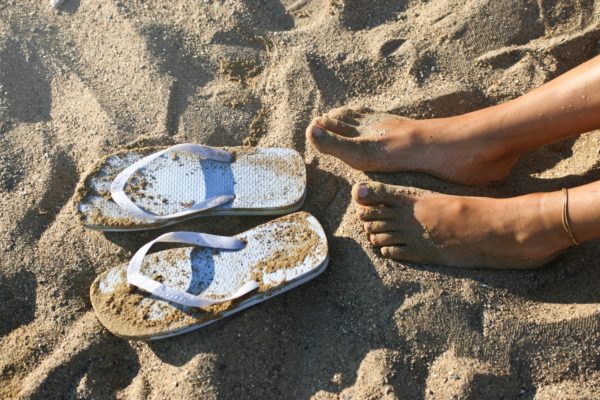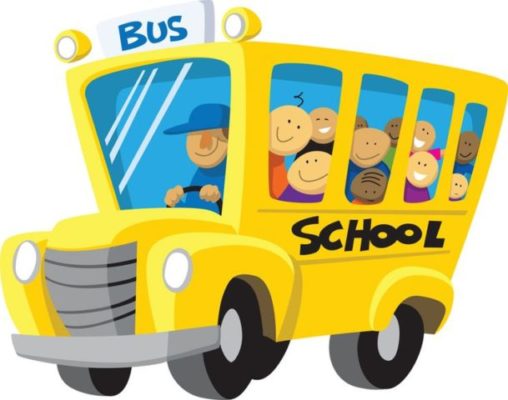Put an End to Summer Learning Loss
Summer learning loss prevention is something that we, as parents, need to think about with our kids! Many experts believe that the summer learning loss percentage can be 1 month of learning from during the school year, though other studies show as much as 25-30% of a loss. Many children reach their academic peak at the end of the school year, after all they have studied, reviewed subjects and sat for endless amounts of tests while being in school nine to ten months at that point. Their brains are full of information that they can recall at the drop of a hat.
 And then what happens? Summer vacation. Around ten to twelve weeks of freedom, fun and no stress or pressure from school. Sure, kids need time to be kids and to enjoy their childhood, but summer learning loss can cause real problems upon the return to school. What is even more problematic is the divide that summer learning loss can create between children.
And then what happens? Summer vacation. Around ten to twelve weeks of freedom, fun and no stress or pressure from school. Sure, kids need time to be kids and to enjoy their childhood, but summer learning loss can cause real problems upon the return to school. What is even more problematic is the divide that summer learning loss can create between children.
While some learning loss is to be expected, the good news is that it can be minimized. The bad news is that some children are more susceptible than others. This article aims to explain who is most affected and hopes to offer some solutions to this educational-dividing issue.
Summer Learning Loss – the Problem and Some Solutions
 Every child is at risk of experiencing summer learning loss. There are, of course, a small percentage of children who attend regular summer school and similar programs, which significantly reduces any learning loss. Unfortunately, in general, children who come from lower income families tend to experience summer learning loss more than their wealthier counterparts.
Every child is at risk of experiencing summer learning loss. There are, of course, a small percentage of children who attend regular summer school and similar programs, which significantly reduces any learning loss. Unfortunately, in general, children who come from lower income families tend to experience summer learning loss more than their wealthier counterparts.
The reasons for this are highlighted here, as well as strategies to prevent summer learning loss regardless of age, economic status or learning ability. With a few steps to minimize learning loss, you can help your kids get on track to have a great start to the new academic year!
Summer Learning Loss Low Income – Why?
One theory suggests that the reason lower-income students return to school with a large learning deficit is due to their lack of resources over the summer period. During school, all students have fairly equal access to learning, especially during class time, thus making similar learning gains and improvements. However, over the summer, students from higher-income families tend to have access to more resources to continue on an ever increasing learning curve.
The tips in this article are not dependent on a high income and are guaranteed to help the positive learning continue no matter what your financial resources.
What Causes the Problem…
In order to prevent summer learning loss, children must keep learning. This doesn’t always mean summer school or extra tutors, although, for some children this is beneficial. Learning happens in a large variety of ways. Holidays, language lessons, and sport camps are all ways to keep learning. They also come at a cost that many families cannot afford.
 Simply engaging children in conversation and spending quality time together can help reduce summer learning loss, but this can be difficult for single parents, those who work long hours and can’t afford time away from work, or those who, for a variety of reasons, have less than positive familial relationships. However, family doesn’t mean just blood relatives. Extended family and friends can all be a part of this as well. Kids learn from whomever is around, just give them the chance!
Simply engaging children in conversation and spending quality time together can help reduce summer learning loss, but this can be difficult for single parents, those who work long hours and can’t afford time away from work, or those who, for a variety of reasons, have less than positive familial relationships. However, family doesn’t mean just blood relatives. Extended family and friends can all be a part of this as well. Kids learn from whomever is around, just give them the chance!
Some Solutions to Fix It
The simple answer is to keep children learning throughout their summer break. Of course, having a healthy budget can help with the type and number of activities children participate in, but money doesn’t have to be a limiting factor. Most summer learning loss articles offer expensive suggestions that are targeted towards families that can afford it. This only increases the educational gap and does nothing to help low income families. Not this article.
Check out the following list of low-cost, accessible and fun learning experiences to aid summer learning loss prevention in all children.
-
Read, Read, Read
 One of the best things children can do over the summer is read. Libraries are usually free to join and offer an abundance of books for children of all ages. Librarians are full of knowledge about books to help advise you on what might suit your child the best, and what might help them develop a love for reading. A child may be a hesitant reader simply because they haven’t found a style of book they enjoy.
One of the best things children can do over the summer is read. Libraries are usually free to join and offer an abundance of books for children of all ages. Librarians are full of knowledge about books to help advise you on what might suit your child the best, and what might help them develop a love for reading. A child may be a hesitant reader simply because they haven’t found a style of book they enjoy.
-
Get Writing
Writing is a valuable skill for all educational levels. It only requires a notebook and a pen or pencil and can help stimulate the creative brain as well as helping children maintain the fine motor skills required to write. This may sound silly, but several months without even gripping a pen can be very detrimental to this widely used skill. For younger children, drawing and coloring are helpful too.
-
Promote a thirst for learning
 The type of children that learn best at school are the ones that want to learn. You can make almost any activity a learning experience by encouraging conversation and asking your child questions. Hopefully, this will stimulate them to think about things and start a journey of curiosity and inquisitiveness. Try simple questions like these;
The type of children that learn best at school are the ones that want to learn. You can make almost any activity a learning experience by encouraging conversation and asking your child questions. Hopefully, this will stimulate them to think about things and start a journey of curiosity and inquisitiveness. Try simple questions like these;
- “ where does the food you are eating come from?”
- “ how do they build bridges over water?”
The best type of questions are ones that naturally form part of a conversation, such as “why do you think…” and “ what will happen if…” Hopefully you get the idea.
Once a child begins to question the world and desire a meaningful and valuable answer, there will be no stopping them! Learning new things is key to summer learning loss prevention!
-
Explore free or near free events and areas
 Most towns and cities have summer events and activities to get involved in or to explore. Summer concerts, art programs, STEM program (growing in popularity and availability), library or community center options are all free or near free to those residents in the community.
Most towns and cities have summer events and activities to get involved in or to explore. Summer concerts, art programs, STEM program (growing in popularity and availability), library or community center options are all free or near free to those residents in the community.
In addition, there are a lot of online resources as well for your kids to explore. For example, do you or your child like to write? Then perhaps writing a book would be something fun like this summertime book writing program to get involved in! Online searches will show several opportunities for kids to get involved in areas that will stimulate and help them grow academically and have fun doing so.
-
Create a positive and supportive environment
A child will be more willing to learn if they feel comfortable. Don’t put your child down for asking questions or when they make mistakes. Encourage them to persist, talk about mistakes, and lead by example by trying new things yourself. If they get nervous about trying something new, maybe you could try it as well? Or show them you trying something else that’s new to you so that they see everyone goes through the same types of experiences.
-
Do something different
If you can afford to take a small holiday, do it. Trips like camping or visiting relatives can often be done without breaking the bank. Taking your children out of their everyday environment gives them a break and a chance to see and do things that they don’t ordinarily do. They will gain new experiences and build more positive relationships with you. Try rearranging the living room together, doing some gardening, eating at the table instead of in front of the television, or playing a board game. Day trips are good too, and there are always cheap and free activities for children during school holidays – you just have to pay attention to what they are.
Our summer learning loss articles are just the beginning of the steps that are available to you to test out! Explore and discover other ways that you can help your kids not have as much or any issues this year! Let us know what steps you do and share so others can get ideas as well.

Enjoy All The Benefits
You don’t pay your first hour unless you find it a good fit.
Only pay for the time you need.
No subscriptions or upfront payments.
Find Tutors Near You